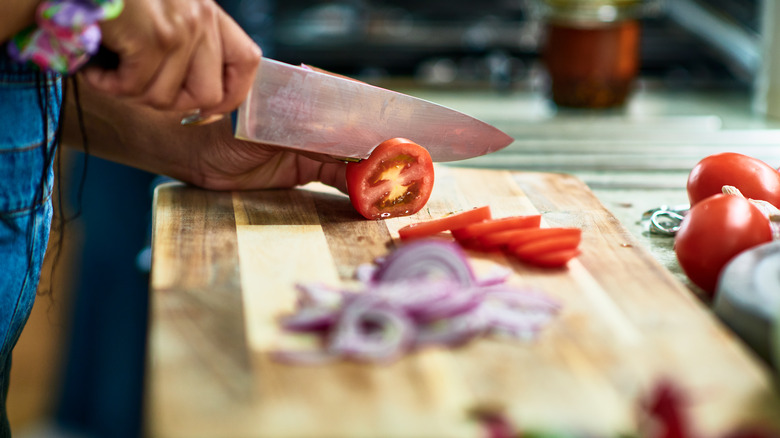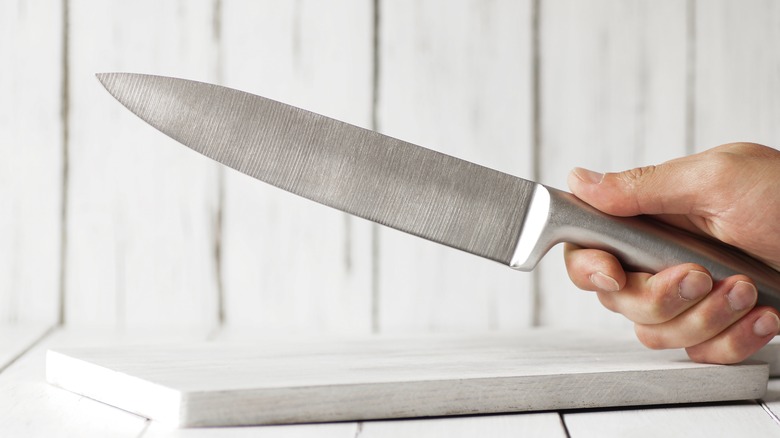The Major Knife Mistake To Avoid When Using A Cutting Board
We're not here to shame anybody, so let's begin with a confession: I have definitely made this major knife mistake many times in the past, and probably will make it many times in the future. Partially that's because it's so easy to do. Say you're cutting up a bunch of vegetables to put into a pot of soup. You've chopped your kale into fine ribbons, the pot is bubbling, all that's left is to carefully drop them in — which you do by carrying your cutting board over to the stove, tipping it slightly downward, and using a knife to scrape in those veggies. It's easy! It's convenient!
Unfortunately, that scraping motion is also dulling the edge of your knife blade. Like sharpening it, but in reverse. Having sharp knife blades isn't just a matter of being able to cut precisely, either. It's also a safety issue, as dull blades lead you to apply more pressure, which can mean a greater risk of injury. (Seriously, don't sleep on knife safety — looking at you Kendall Jenner.)
You need a blade that will slice effortlessly through whatever you're trying to cut (it also helps to be cutting with a good-quality chef's knife). While knives need to be sharpened from time to time anyways, there's no reason to dull them in a way that can be easily avoided. And it's easy to avoid dulling your knife this way. All you have to do is turn that blade around.
How to keep your knife edge sharp while cutting and scraping
If you're really attached to using your knife to scrape food off the cutting board, luckily, the solution couldn't be simpler: Just turn that knife around so you're scraping with the spine rather than the blade. The spine is already dull, so you're not harming anything.
If you want to introduce another tool into the equation, reach for a steel bench knife or a plastic bowl scraper. These two implements are often used by bakers. A bench knife, which has a hard metal edge but isn't sharp, is good for dividing up doughs. Plastic scrapers are flexible enough that they can get every bit of dough from the bottom of a mixing bowl, but firm enough that they also excel at scraping bits of flour or other ingredients off countertops. Both are perfect for scraping food from a cutting board. Both are also much cheaper than, say, a replacement kitchen knife — that bowl scraper might run you about three bucks.
The kind of cutting board matters, too. Materials like glass or marble look pretty, but they're so dense and hard that they quickly dull blades. Better to use a softer material like plastic or wood. The former has the added benefit of being dishwasher-friendly, while the latter may require a tiny bit more TLC than glass, marble, or plastic; but we've got you covered there. See our guide to the best way to clean and maintain a wooden cutting board.

